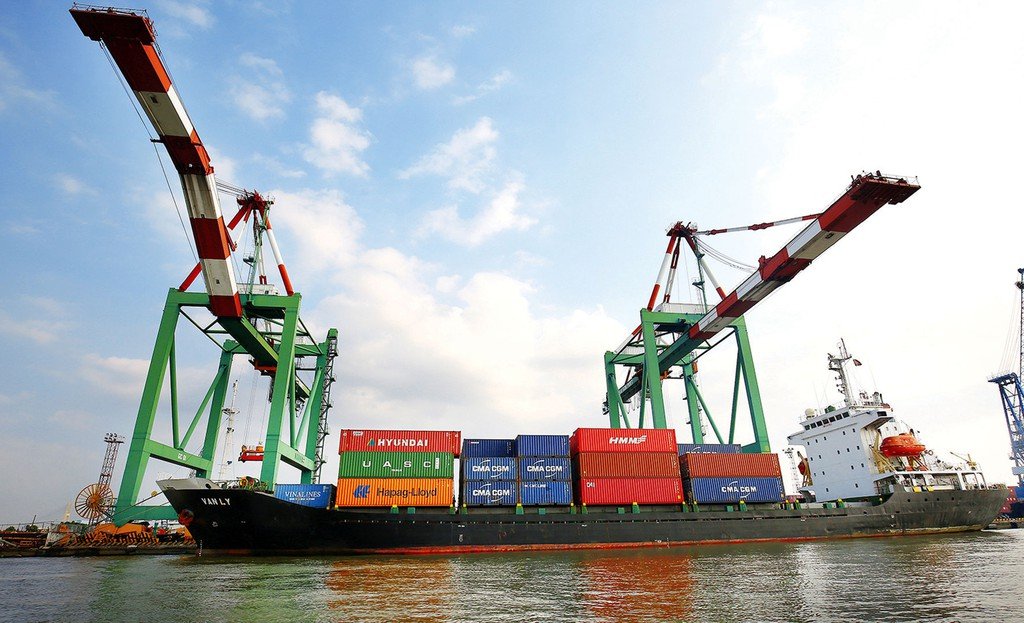Any organization or individual when signing a contract wants the partner to perform properly and fully the obligations under the contract. However, during the implementation process, the parties often violated the contract, infringed on the rights and interests of the other party, resulting in very complicated contract dispute resolution. Therefore, the trend of strengthening sanctions in violation of the Contract is very popular today. Within the scope of this article, Hung Phuc Law Office will analyze in detail the sanctions on violations in common contracts.

- 1. What is a fine?
According to Clause 1, Article 418 of the 2015 Civil Code, a violation is an agreement between the parties in the contract, whereby the violating party is obliged to pay an amount to the aggrieved party. Penalties for violations are prescribed in the Civil Code, Commercial Law, Construction Law. However, each level of infringement prescribed by the laws is different.
Fines for violations in common contracts
Civil contracts
For civil contracts, the level of violation is completely agreed upon by the parties, not limited to the maximum level. Specifically, Article 418 of the Civil Code 2015 provides:
Article 418. Agreement on violation penalty
Violation is an agreement between the parties in the contract, whereby the violating party is obliged to pay an amount to the aggrieved party.
The sanctioning level shall be agreed upon by the parties, unless otherwise prescribed by related laws.
The parties may agree that the violating party shall only be subject to penalties for infringement without compensation for damage or at the same time subject to penalties for violations and compensations for damage.Where the parties have an agreement on a fine for a violation but do not agree on both being subject to both a fine and a compensation for damage, the violating party shall only be subject to the punishment of the violation.
When applying this sanctions, the parties need to determine whether the contractual relationship between the two parties is a civil contract, subject to the Civil Code? According to Article 385 of the Civil Code, a contract is an agreement between the parties to establish, change or terminate civil rights and obligations.
Common civil contracts such as: Property sale and purchase contract, Property exchange contract, Gift giving contract, Property loan contract, Property lease contract, Property lease contract, Contract property borrowing contract, land use right contract, cooperation contract, service contract, transportation contract …
So is the contract signed between the two businesses considered a civil contract?
Based on the above laws, we must consider the content, purpose and choice of the business. In case the contract is signed between two legal entities but for consumption activities such as buying tables and chairs and computers for the office, if the Buyer chooses to apply civil law, it will be governed by civil law. . In contrast, the purpose of buying furniture, computers for business and trade is governed by the Commercial Law.
2. Commercial contracts
There is no provision in the Commercial Law of 2005. However, it can be understood that a commercial contract is a legal form of commercial conduct, an agreement between business entities to establish, change and terminate the rights and obligations of the parties in. the performance of commercial activities.
In commercial contracts, the parties may only agree on fines for violations: “The fine level for violating the contractual obligations or the total fine level for many violations shall be agreed upon by the parties in the contract, but not exceeding 8 % of the value of the contractual obligation part violated, except for the case specified in Article 266 of the Commercial Law. ”
In judicial practice, commercial business cases, if the parties agree to penalize violations of more than 8% of the violated obligations, the Courts often base on Article 301 of the 2005 Commercial Law to set a maximum penalty. 8% of the obligations were breached without much argument about the excess. Most of the judgments stated that it was inappropriate to “negotiate a fine higher than 8% of the violated obligation”.
Thus, the Commercial Law only stipulates a “ceiling” for penalties for violations but does not provide for handling when the two parties agree that the fine will exceed this “ceiling”. In our opinion, the “ceiling” is set to be unfounded, so it should be removed so that the two parties are free to agree to ensure reasonable sanctions, limiting contract breaches.
3. Construction contracts
The fine in a construction contract does not exceed 12% of the value of the violated part of the contract, specifically Article 146 of the 2014 Law on Construction:
Article 146. Rewards and fines for construction contracts, compensation for damage caused by violations and settlement of construction contract disputes
Rewards and fines for construction contracts must be agreed by the parties and stated in the contracts.
For construction works using state capital, the contractual fine level shall not exceed 12% of the value of the violated contract part. In addition to the fine as agreed, the party in breach of contract must also pay damages to the other party, a third party (if any) in accordance with this Law and other relevant laws.
Conditions for applying the violation penalty
According to the above laws, sanctions can only be applied when:
The contract is valid:
The provisions on penalties for violations are in the contract performance part (Civil Code 2015) and the sanctions in the Commercial Law 2015. This means that the violation penalty is only valid when the contract comes into effect. Thus, the contract is legally valid, the terms that the parties have agreed will be legally valid. Conversely, if the contract is invalid, the agreement to sanction the violation will not be legally effective.
There is a violation of obligations
Clause 1, Article 351 of the Civil Code 2015 provides: “The obligor m - If you breach your obligations, you have civil liability to the obligee. Breach of the obligation is the obligation by the obligor not to perform the obligations on time, to fulfill the obligations fully or to perform the contents of the obligations improperly “. Therefore, sanctions for violations only apply when the other party has violated the agreements specified in the contract.
There is an agreement on penalties for violations between the parties
If there is an agreement on penalties between the parties, according to the provisions of the Civil Code 2015, the level of penalty shall be agreed by the parties, unless otherwise prescribed by relevant laws.
Clause 1, Article 307 of the 2005 Commercial Law stipulates: “In case the parties do not have an agreement on penalties for violations, the aggrieved party is only entitled to claim damages, unless otherwise prescribed by this Law.”
Thus, agreement on violation penalty will only be applied when all 3 above factors are met. Unlike compensation for damages due to breach of contract, compensation based on fault and damage, the breach of contract does not mention errors, damages but only based on the agreement of the two side.
With the knowledge of current laws and many years of experience in advising businesses in the field of commercial business, we are ready to support and advise our customers on the following services:
Counseling on the legal provisions related to: Commercial contracts, civil contracts and other agreements in the course of business activities of enterprises;
Drafting the contract, assessing and reviewing the provisions of the Contract to ensure compliance with the current law provisions and the rights and interests of the enterprise;
Support and join customers to negotiate with partners / third parties to ensure the best interests of customers;
Consulting other issues related to businesses such as: Child license, Application for approval of Investment Project, Labor, Intellectual Property ….If customers are in need of advice, legal support in drafting or assessing legal risks in contracts, contact us immediately to get the best legal services.
phapluatdoanhnghiep.vn
- Decree no 163/2018/NĐ-CP issuance of corporate bonds
- HOW TO GET ONE-TIME SOCIAL INSURANCE AND UNEMPLOYMENT BENEFITS
- FINAL HANDLING OF VIOLATIONS AGAINST SPAM, MESSAGES AND PROVISION OF CONTENT SERVICES
- CURRENT PROVISIONS ON UPDATING THE NEW ECONOMIC CODE
- CONSULTING FOR ESTABLISHMENT OF A REPRESENTATIVE OFFICE OF FOREIGN COMPANIES IN VIETNAM













